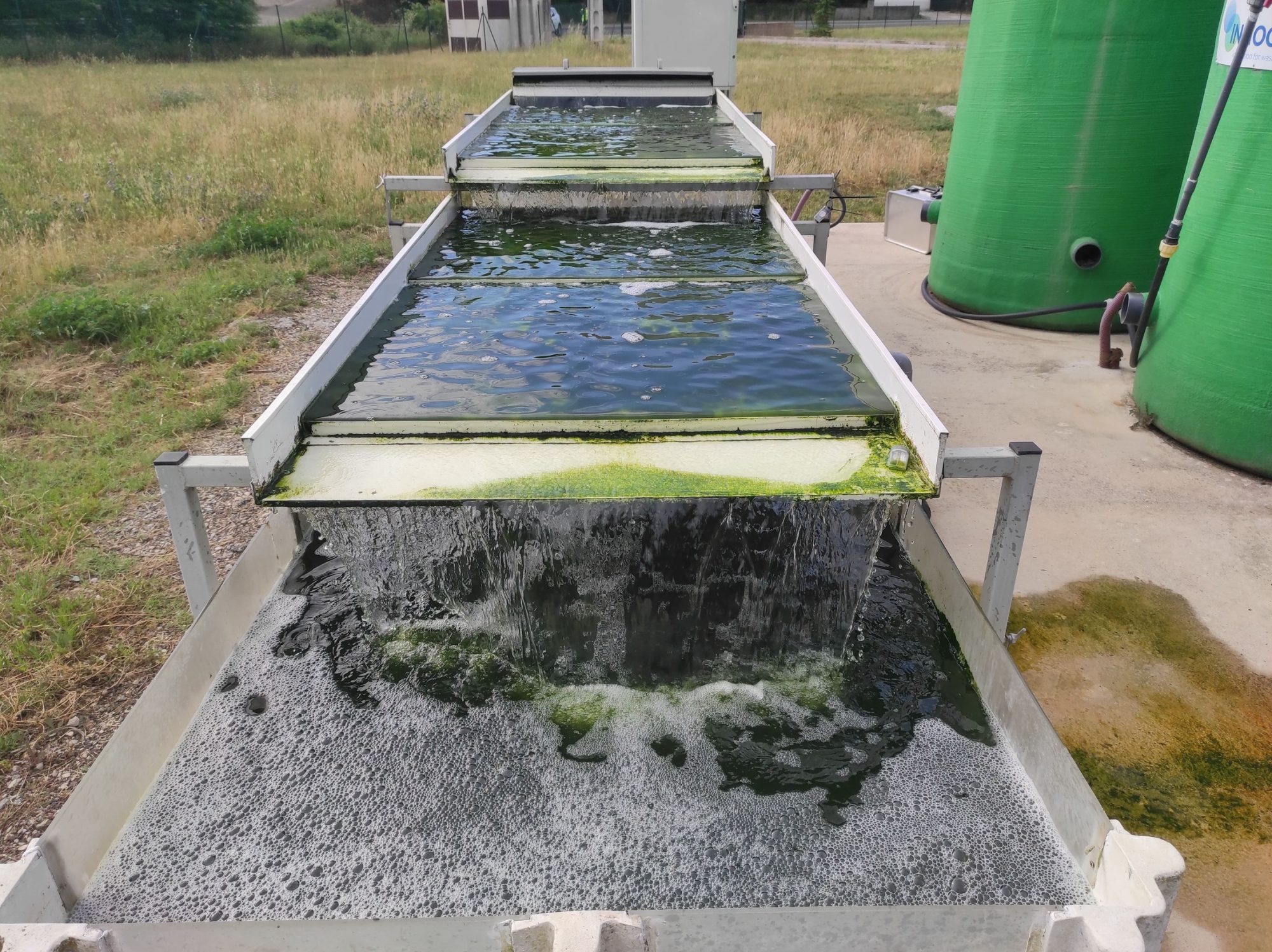A natural reactor combining microbial communities significantly improves the quality of water treated in small wastewater treatment plants
The research is framed within the new European Directive on urban waste water treatment

Researchers at the BETA Technology Centre at the University of Vic – Central University of Catalonia (UVic-UCC), the University of Girona (UdG) and the Catalan Institute for Water Research (ICRA-CERCA) have developed a biofilm and plankton-based reactor (BPR) that significantly improves water quality.
The study, recently published in the Journal of Environmental Management, shows that this nature-inspired system can significantly reduce nutrients such as nitrogen and faecal bacteria such as Escherichia coli, two of the main pollutants affecting rivers that receive urban wastewater.
The research is part of the new European Directive on urban wastewater treatment, in force since November 2024. This regulation represents a major change, as by 2025 it not only strengthens quality standards for large treatment plants, but also extends the obligation to apply more efficient treatments to small ones. These localities, which until now were exempt from most of the requirements, will have to adapt to new demands in terms of reducing nutrients and pollutants. The challenge is considerable, especially at the economic and technical level, but it also represents an opportunity to commit to more sustainable and accessible solutions, such as those based on nature, which allow for improved treatment without skyrocketing energy and infrastructure costs.
A sustainable and adaptable alternative
‘The reactor combines microbial communities that act in a similar way to what occurs in natural aquatic ecosystems, purifying water without the need for very expensive or energy-intensive technologies,’ explains Lorenzo Proia, a researcher at the BETA Technology Centre and co-author of the study. ‘It is a sustainable and adaptable alternative, designed especially for smaller treatment plants, which often find it more difficult to comply with regulations or invest heavily in advanced treatments,’ adds Proia.
“Our results show that microbial communities can significantly reduce nutrients and faecal bacteria in wastewater. This breakthrough provides a solid scientific basis for trusting nature-based solutions and applying them within the framework of the new European regulations,” says Lluís Bertrans-Tubau, a researcher at the BETA Technology Centre and first author.
In addition, the team analysed the system’s ability to remove emerging pollutants, such as pharmaceuticals and everyday compounds. Although the results were variable, new opportunities for optimisation are opening up for future versions of the reactor.
According to José L. Balcázar, researcher at ICRA-CERCA and co-author of the study, “the most relevant aspect of this approach is that it not only improves water quality, but also helps us understand how microbial communities participate in purification. This opens the door to technologies that are more resilient to climate change and emerging pollution.”
The project was carried out at a pilot plant located in Quart (Girona) and involved a multidisciplinary team of chemists, microbiologists, ecologists and water management specialists.
In a context of increasing pressure on water resources, this work reinforces the need to commit to nature-based solutions to ensure the sustainability and water security of our communities, especially in Mediterranean territories, where water scarcity and the vulnerability of ecosystems make innovation in purification even more urgent.
